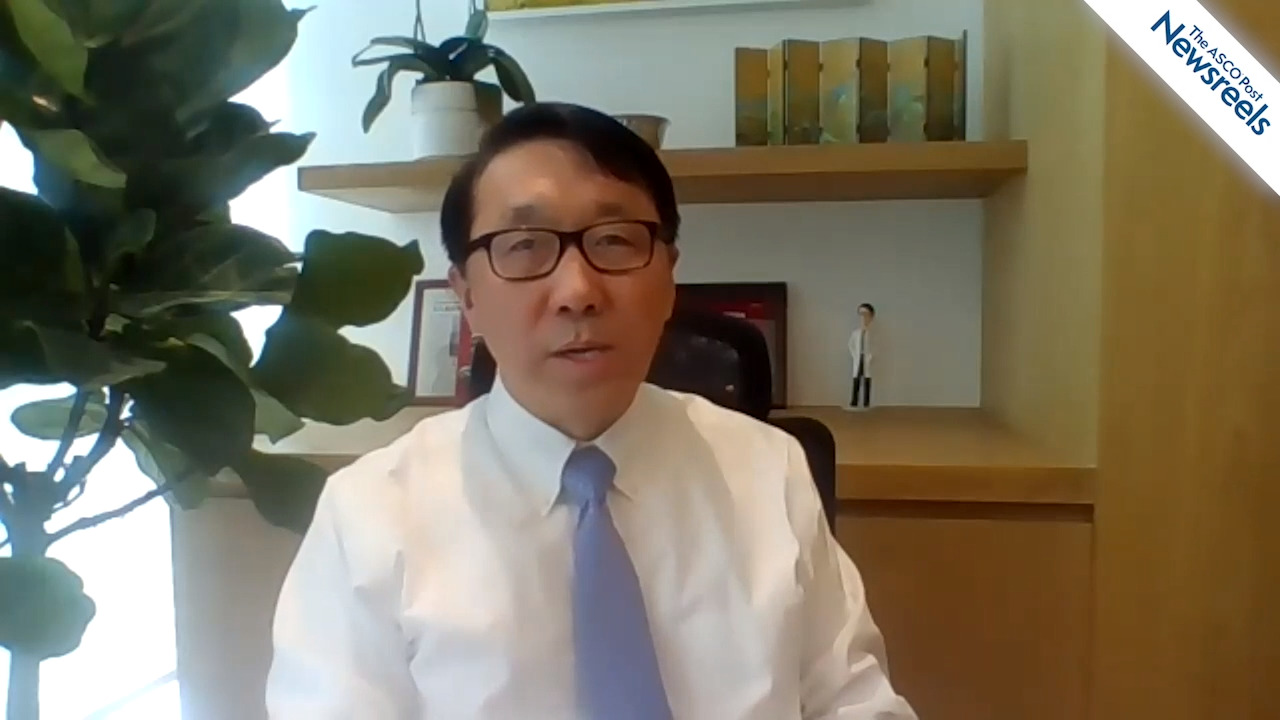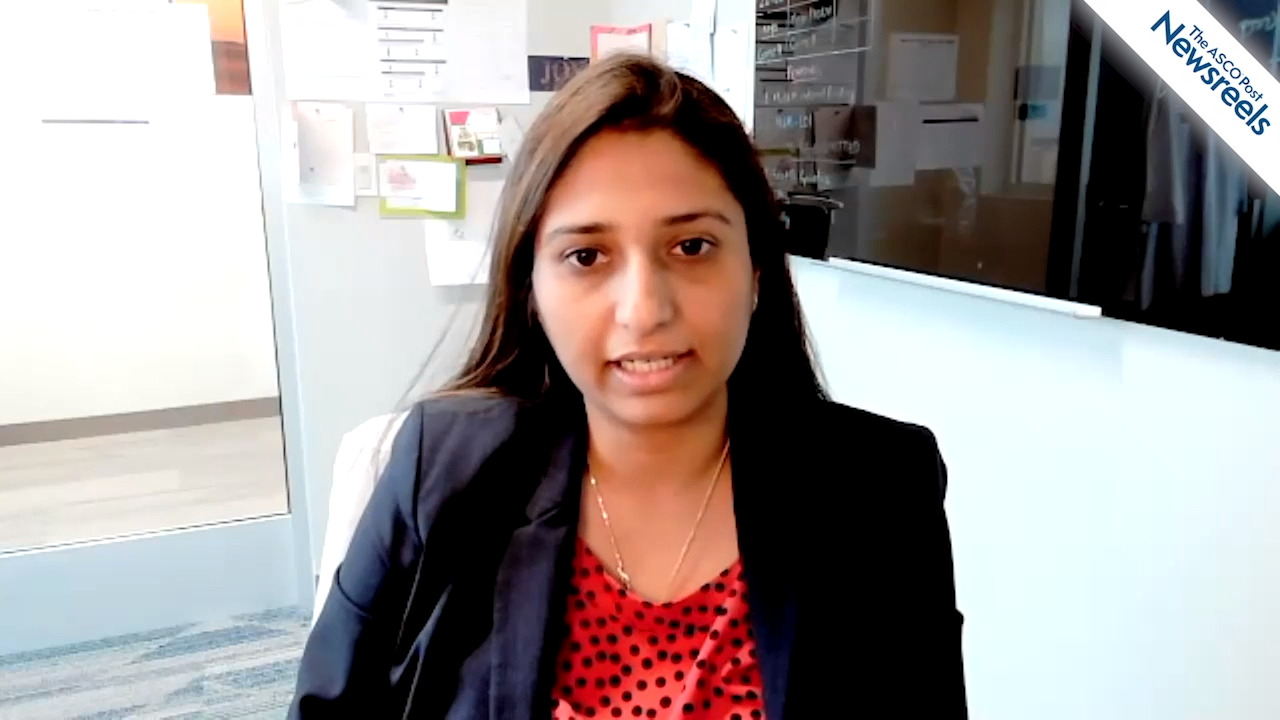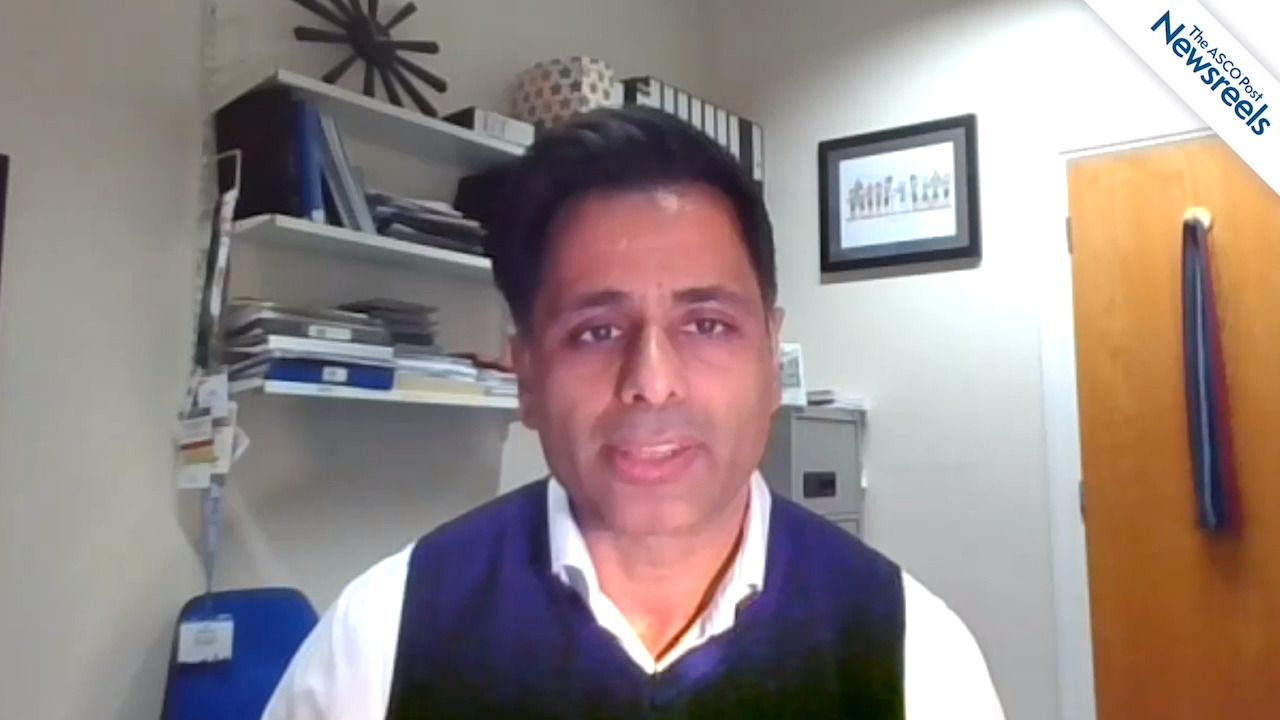Milind M. Javle, MD, on Cholangiocarcinoma: Treatment With Infigratinib
2021 Gastrointestinal Cancers Symposium
Milind M. Javle, MD, of The University of Texas MD Anderson Cancer Center, discusses phase II study results showing that the novel tyrosine kinase inhibitor infigratinib may prove to be effective in treating patients with advanced cholangiocarcinoma harboring an FGFR2 gene fusion or rearrangement (Abstract 265).
The ASCO Post Staff
Andrew X. Zhu, MD, PhD, of Massachusetts General Hospital, discusses final results from the phase III ClarIDHy study, which showed that ivosidenib may improve overall and progression-free survival compared with placebo in patients with previously treated cholangiocarcinoma and an isocitrate dehydrogenase 1 mutation (Abstract 266).
The ASCO Post Staff
Rutika Mehta, MD, MPH, of the H. Lee Moffitt Cancer Center and Research Institute, discusses the 3-year regression-free and overall survival results from the JACCRO study, which compared the efficacy of S-1, an oral prodrug of fluorouracil, vs S-1 plus docetaxel after curative resection of stage III gastric cancer (Abstract 159).
The ASCO Post Staff
Afsaneh Barzi, MD, PhD, of the City of Hope Comprehensive Cancer Center and the University of Southern California, discusses reasons for the incomplete understanding of the molecular landscape of minority patients with cancer, lack of screening chief among them. This underrepresentation, Dr. Barzi says, is more marked in gastrointestinal malignancies than other solid tumors, and she recommends ways to improve the outlook.
The ASCO Post Staff
Wasat Mansoor, MBChB, PhD, of The Christie NHS Foundation Trust, discusses phase III results from the KEYNOTE-590 trial, which showed no deterioration in health-related quality of life when pembrolizumab was added to chemotherapy in patients with metastatic and unresectable esophageal cancers (Abstract 168).
The ASCO Post Staff
Tenna V. Henriksen, PhD Candidate, of Aarhus University, discusses her findings on how circulating tumor DNA may help assess recurrence risk and the benefit of adjuvant therapy, and more quickly detect early relapse after treatment in patients with colorectal cancer (Abstract 11).





